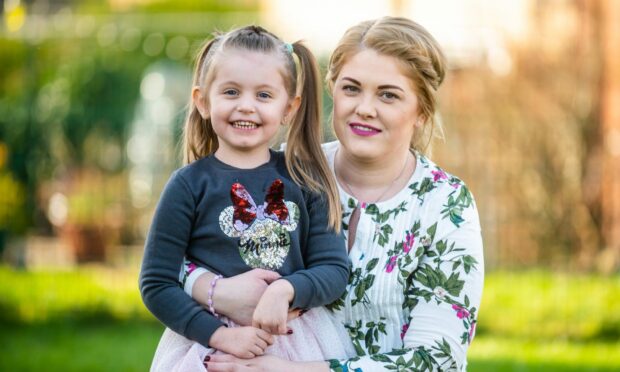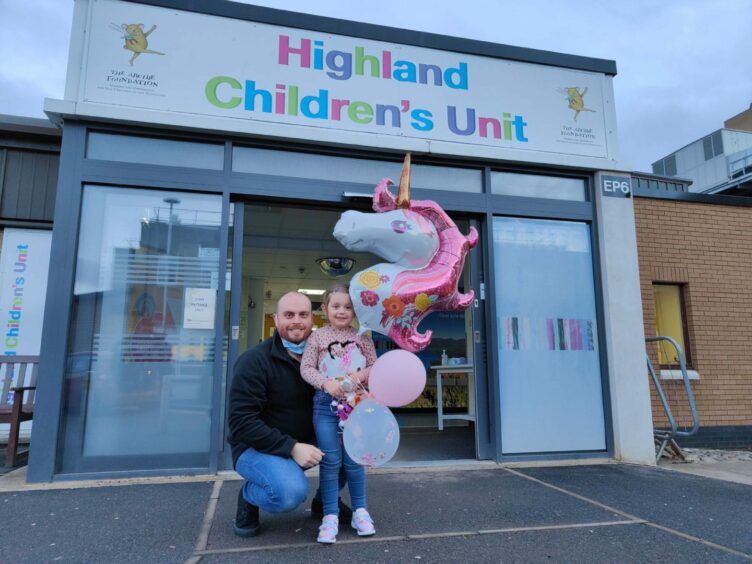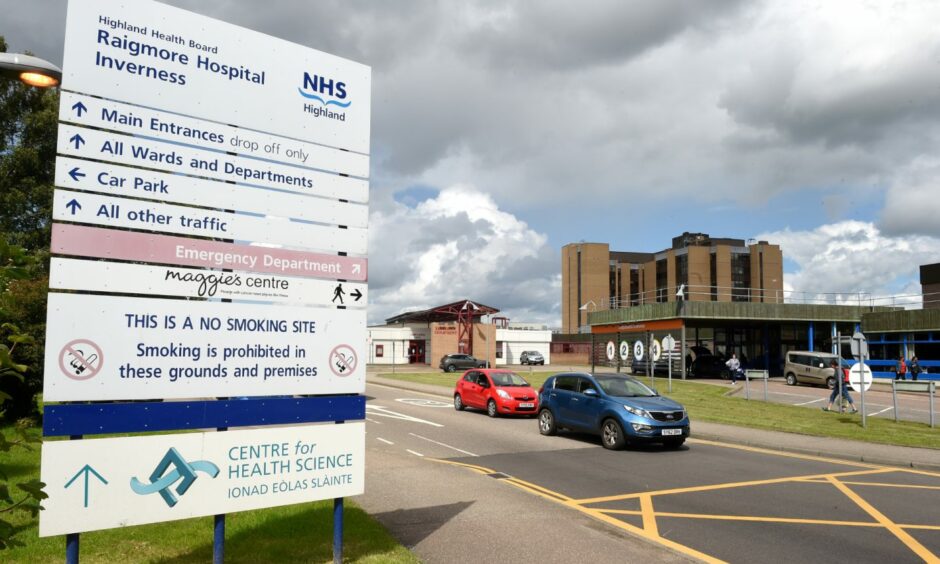Lexie Forsyth is like any happy-go-lucky four-year-old who loves princesses and playing with her friends.
But just seven months ago a mystery illness caused her brain to swell, leaving her unable to walk, talk or even feed herself.
Devastated parents Emilia Blanaru and Mark Forsyth, who are separated, said the devastating illness turned their daughter “into a newborn baby again”.
But the determined toddler, who was flown more than 100 miles to save her, has battled back from the brink after a marathon 117 days in hospital and months of intense therapy.
And she has astounded medics and her parents with her strength and determination and is now able to make the 10-minute walk to nursery – something her parents feared might never happen as they watched her cling to life in hospital.
‘She was a vegetable, she had to learn everything again’
Doctors are unable to say if Lexie will make a full recovery, and she still uses a wheelchair for long distances.
But Miss Blanaru said: “She has come through so much. She was basically a vegetable. Like a baby, she had to learn everything from the very beginning again.
“We had to lift her up; she couldn’t walk, or sit, or feed herself. We had to put her in nappies again.
“But she never gave up. She was always trying, which is good.
“Before, she was always dancing and running around and now she is back to being Lexie. She still holds onto the handles on the drawers when she is dancing. But hopefully she will get there. It’s good physio for her walking slowly to nursery and she wants to do it. She has a backpack on as well. We just take it little by little each day.”
Lexie, who lives with her mother and brother Daniel, two, in Inverness, has now been crowned Brave Child of the Year at a Highland Heroes awards ceremony.
Her proud grandmother, Alison Canavan, nominated her for the accolade after watching the courageous girl fight every obstacle with her infectious smile.
Miss Blanaru admitted Lexie still has “bad dreams” about her ordeal and both she and the tot are seeing a psychologist to support them.
But she said: “She is a happy girl and she is always smiling.
“When we were in hospital, though, she was too young to understand everything that was going on. It was too much for her and it was hard watching her. She would be cuddling into me saying ‘mu’ and then there was no voice. But I just keep telling her ‘you are strong and it will come.'”
‘We didn’t know what was happening’
The family’s ordeal began when Lexie fell ill last summer with a fever and started vomiting and having seizures.
Doctors initially put her symptoms down to a viral infection and sent her home with antibiotics.
But when her condition continued to get worse and she started to lose consciousness, she was airlifted from Caithness General Hospital in Wick to Raigmore Hospital, Inverness, where medics faced a race against time to save her.
Miss Blanaru said: “I think if we had been one more day at home it would be a very different story right now.”
Lexie, who was living with her mother in Thurso at the time, was initially to be transferred by road but it was decided she would struggle to make the journey and was flown the 110 miles to Inverness instead.
As she lay in a coma for the next seven days, doctors carried out a series of scans and tests, including a lumbar puncture, in a desperate bid to find out what was wrong.
Miss Blanru said: “She was supposed to be starting nursery and she was looking forward to seeing all her friends and instead we were in the hospital.
“It came totally out of the blue. I was going out of my mind seeing her like that. It was really hard and we didn’t know what was happening.”
Doctors in Inverness initially suspected a urine infection was to blame and then feared it could be meningitis and she was given a cocktail of life-saving antibiotics and steroids.
But after two months they confirmed Lexie had been struck down with a rare inflammation of the brain called acute disseminated encephalomyelitis (ADEM).
What is acute disseminated encephalomyelitis?
Also known as ADEM, it is a rare inflammatory condition that affects just one in 125,000 to 250,000 people worldwide.
It mainly affects children under 10 and often follows a minor infection, such as a cold.
According to Great Ormond Street Hospital, it results in the immune system becoming “mis-programmed”, activating cells to attack the healthy protective coating of the nerves in the brain and spinal cord.
ADEM usually comes on quickly over hours or days with varying symptoms including nausea, vomiting, headache, tiredness and loss of balance. Vision problems and weakness or tingling in the body are also a sign. In severe cases like Lexie’s, it can cause seizures.
A small number of children with ADEM will go on to suffer further attacks and possibly develop MS.


